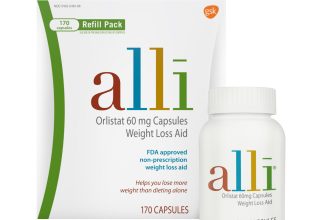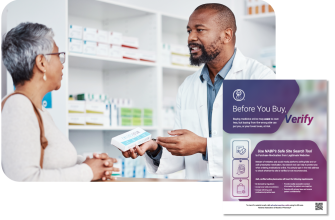Need medication quickly and conveniently? Skip the long lines and doctor’s office visits. Many reputable online pharmacies offer a secure and user-friendly experience, letting you order prescriptions from the comfort of your home. We’ve compiled key information to guide you through the process.
Verify the online pharmacy’s legitimacy with your state’s board of pharmacy and check if they’re accredited by recognized organizations like the Verified Internet Pharmacy Practice Sites (VIPPS). This simple step significantly reduces risks associated with counterfeit drugs or fraudulent practices. Always review online reviews from verified customers to get a sense of their experiences.
Look for pharmacies that offer secure online ordering systems, using SSL encryption to protect your personal and payment information. Be wary of pharmacies requesting unnecessary personal data beyond the essentials for prescription fulfillment. Transparency in their pricing, shipping, and return policies is also a critical indicator of a reputable provider. Remember to confirm your prescription details carefully before submitting your order.
Choosing a reliable online pharmacy means ensuring your health and safety. By following these straightforward steps, you can access your medications quickly and confidently, leveraging the convenience of online ordering while prioritizing responsible pharmacy selection.
- Online Pharmacy: A Comprehensive Guide
- Choosing the Right Online Pharmacy
- Managing Your Medications Online
- Finding Reputable Online Pharmacies
- Prescription Ordering and Delivery Process
- Medication Safety and Security
- Secure Payment Methods
- Prescription Verification
- Medication Packaging and Shipping
- Data Privacy
- Cost Comparison and Savings
- Insurance Coverage and Reimbursement
- Understanding Your Copay and Deductible
- Mail-Order Options
- Legal and Regulatory Aspects of Online Pharmacies
Online Pharmacy: A Comprehensive Guide
Start by verifying the pharmacy’s license and accreditation with your state board of pharmacy. This ensures they operate legally and maintain high standards.
Choosing the Right Online Pharmacy
Check for secure payment gateways (look for HTTPS and SSL encryption). Read independent reviews from multiple sources, paying attention to delivery times, customer service responsiveness, and medication accuracy. Compare prices across several reputable pharmacies, but prioritize safety and reliability over minor cost differences. A slightly higher price from a well-established pharmacy is often a worthwhile investment in your health.
| Factor | Recommendation |
|---|---|
| Accreditation | Verify licenses and certifications from relevant authorities. |
| Security | Confirm secure payment methods (HTTPS/SSL). |
| Reviews | Consult multiple independent review sites. |
| Customer Service | Test their responsiveness to inquiries before ordering. |
| Shipping | Check for reliable shipping options and delivery times. |
Managing Your Medications Online
Maintain detailed records of your prescriptions and refills. Regularly review your medication list to identify potential interactions or adverse effects. Communicate directly with your doctor or pharmacist through secure channels provided by the online pharmacy to address any concerns or changes in your health.
Always confirm the medication’s appearance and details match the prescription before taking it. Report any discrepancies immediately. Dispose of unwanted medications responsibly according to your local guidelines. Don’t hesitate to contact your doctor or pharmacist if you have questions regarding your medications or their usage. Your health is paramount; prioritize responsible medication management.
Finding Reputable Online Pharmacies
Check for a valid license and accreditation. Look for verification from regulatory bodies like the Pharmacy Checker Verification Program or similar organizations in your country. This confirms the pharmacy adheres to safety and quality standards.
Verify the pharmacist’s credentials. Reputable online pharmacies employ licensed pharmacists who can answer your questions and provide advice. Look for contact information, including a phone number and physical address, to confirm legitimacy.
Scrutinize the website’s security. A secure website uses HTTPS, indicated by a padlock icon in the address bar. This protects your personal and payment information during transactions.
Read customer reviews and testimonials. Independent review sites offer insights into other customers’ experiences, highlighting positive and negative aspects of the service and medication quality.
Compare prices cautiously. While lower prices might be tempting, extremely low prices often signal counterfeit medications. Reasonable pricing often suggests higher quality and safety.
Review their privacy policy. A transparent privacy policy clearly explains how your data is collected, used, and protected. Understand how your information will be handled before sharing anything.
Beware of pharmacies that require no prescription. Legitimate pharmacies require a valid prescription for controlled substances and other medications. This protects you from potentially harmful or inappropriate medications.
Contact your doctor or pharmacist. Consult with your healthcare professional before using any online pharmacy; they can offer valuable guidance and help you identify trustworthy sources.
Remember: Your health is paramount. Choose wisely.
Prescription Ordering and Delivery Process
Upload a clear photo of your prescription. Ensure all information, including your name and the doctor’s details, is legible.
Our secure system verifies your prescription with your doctor’s office. You’ll receive a confirmation email once this step is complete.
Choose your preferred payment method: Credit card, debit card, or other accepted options are available at checkout.
Select your delivery address and shipping option. We offer various speed options to suit your needs. Track your order’s progress in real-time via the tracking link provided in your confirmation email.
Upon delivery, a signature might be required depending on your chosen shipping method and local regulations. Your medications arrive discreetly packaged.
If you have questions, contact our customer support team via phone or email. We are available 24/7 to assist you.
For refills, simply upload a photo of your new prescription when needed. We’ll process your request quickly and efficiently.
Note: We adhere to all relevant regulations and laws concerning online prescription ordering and medication delivery.
For faster processing, ensure your uploaded prescription includes all necessary details.
Medication Safety and Security
Always verify the online pharmacy’s license and accreditation with your country’s regulatory body. Look for verifiable addresses and contact information. Avoid pharmacies without these details.
Secure Payment Methods
Use secure payment gateways like PayPal or credit card processors that offer buyer protection. Never send money via wire transfer or untraceable methods. Check for SSL encryption (the padlock icon in your browser’s address bar).
Prescription Verification
Ensure the pharmacy requires a valid prescription from a licensed healthcare provider. Legitimate pharmacies will not fill orders without one. Understand their verification process.
Medication Packaging and Shipping
Check for tamper-evident packaging. Report any damage to the pharmacy immediately. A reputable pharmacy will ship your medication discreetly using reputable couriers, providing tracking information.
Data Privacy
Read the pharmacy’s privacy policy carefully. Confirm their commitment to protecting your personal and health information. Look for policies complying with relevant data protection laws like HIPAA (in the US) or GDPR (in Europe). A robust privacy policy should clearly state how they handle your data.
Cost Comparison and Savings
Start by checking multiple online pharmacies. Compare prices for the same medication across at least three different sites. Price discrepancies can be significant.
Consider using pharmacy comparison websites. These tools aggregate pricing data from various online pharmacies, saving you the effort of manual comparison. Many offer features like filtering by insurance coverage.
- Example: A recent comparison showed a 30% price difference for a common blood pressure medication between the highest and lowest priced online pharmacies.
- Tip: Look for discounts. Many online pharmacies offer discounts for large orders, repeat prescriptions, or using specific payment methods.
Explore manufacturer coupons and patient assistance programs. Pharmaceutical companies often offer coupons that can substantially lower your out-of-pocket costs. Patient assistance programs provide medications at reduced or no cost to eligible individuals.
- Check the manufacturer’s website for available coupons.
- Look for patient assistance programs offered by organizations like the Partnership for Prescription Assistance.
Verify your insurance coverage. Check with your insurance provider to see if your plan covers medications purchased from online pharmacies and what your co-pay would be. Often, using an in-network pharmacy online can offer significant savings compared to in-person visits.
Be aware of shipping fees. While the medication itself might be cheaper online, factor in shipping costs before making a purchase. Some pharmacies offer free shipping on orders over a certain amount.
- Pro Tip: Compare the total cost, including shipping, before finalizing your order to ensure you’re getting the best overall deal.
Don’t forget about generic medications. Generic drugs usually cost considerably less than brand-name equivalents while offering the same active ingredients and effectiveness. Choosing generic options can lead to substantial savings over time.
Always prioritize a licensed and reputable online pharmacy. Verify the pharmacy’s license and accreditation to ensure you are buying safe and legitimate medications.
Insurance Coverage and Reimbursement
Check your insurance plan’s formulary. This list specifies which medications your plan covers and at what cost. Many online pharmacies allow you to enter your insurance information during checkout to verify coverage and estimate your out-of-pocket expenses.
Understanding Your Copay and Deductible
Your copay is the fixed amount you pay for a prescription, while your deductible is the amount you pay before your insurance begins to cover costs. High deductible plans often require you to pay a larger percentage upfront, but might offer lower monthly premiums. Knowing these details helps you budget for your prescriptions.
Many online pharmacies offer tools to compare prices with and without insurance. Use these tools to determine which option offers the best value. Some plans may require you to use a specific pharmacy in their network; check your plan details carefully to avoid unexpected costs.
Mail-Order Options
Consider mail-order pharmacies for long-term prescriptions. These pharmacies often offer lower prices, especially with insurance, for multi-month supplies. Contact your insurance provider to see if they offer mail-order benefits. Ensure you order your refills well in advance to prevent interruptions in your medication supply.
Always verify that the online pharmacy you choose is accredited and licensed. Look for certifications from organizations like VIPPS (Verified Internet Pharmacy Practice Sites). Protecting your privacy and securing safe medication delivery should always be your priority.
Legal and Regulatory Aspects of Online Pharmacies
Operating a legitimate online pharmacy requires strict adherence to numerous laws and regulations. Understanding these is paramount for both consumer safety and business viability.
First, you must obtain the necessary licenses and permits. This varies significantly by jurisdiction. For example, the United States requires registration with the Drug Enforcement Administration (DEA) for controlled substances and state-specific licenses for dispensing medications.
- DEA Registration: Crucial for handling controlled substances, this involves a rigorous application process and ongoing compliance requirements.
- State Licensure: Each state has its own pharmacy licensing board with specific regulations, including requirements for physical pharmacy locations and online operation.
- International Regulations: Selling pharmaceuticals across borders involves navigating complex international laws and treaties, varying widely by country of origin and destination.
Secondly, maintaining patient privacy is critical. The Health Insurance Portability and Accountability Act (HIPAA) in the US, and similar legislation globally, mandates stringent data protection measures. This includes secure data storage, transmission, and disposal practices.
- Secure data encryption is necessary for all patient information.
- Regular security audits are required to identify vulnerabilities and ensure compliance.
- Stringent employee training on data privacy protocols is mandatory.
Thirdly, accurate prescription verification and dispensing procedures are mandatory. Systems must ensure that prescriptions are valid, authentic, and not fraudulent. This involves robust verification processes and secure handling of prescription information.
- Implement a reliable prescription verification system, potentially integrating with state prescription drug monitoring programs (PDMPs).
- Maintain detailed records of all dispensed medications, including patient information and prescription details.
- Establish clear procedures for handling prescription errors and reporting adverse events.
Finally, continuous compliance is ongoing. Regularly review and update your practices to remain compliant with evolving regulations. Consult with legal and regulatory experts regularly for guidance and to stay abreast of changes.







